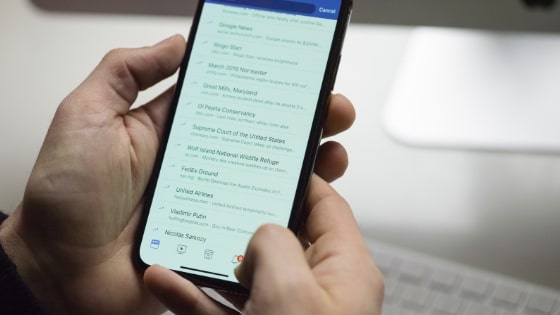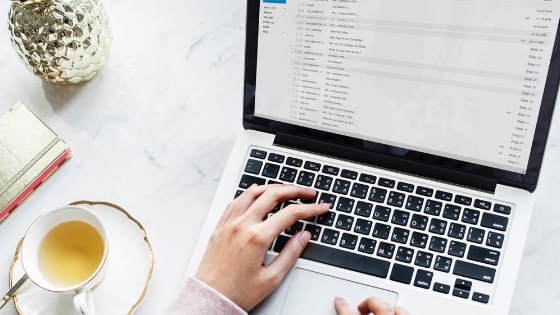
A professional email makes a positive impact.
Today, you’re more likely to check your email inbox for important news and information over your postal box. Email is quick, efficient, and offers instant gratification. But even though email has become the preferred method of contact in personal and professional circles, you may still be tempted to treat it casually. As a student and professional, that can be dangerous for your career. Here are four common email mistakes and how you can avoid them.
1. An unprofessional email address can prevent you from being hired or given career opportunities you may be qualified for. When you have the opportunity to customize something to your personality, you want to take advantage of it. After all, you want to be perceived as cool, clever, and creative and a fun email takes care of that! But an email that is anything but your name can prevent you from being considered for a job or a promotion at your current company. Your email address is one of the first things people see on your resume, especially if you email your resume to the hiring department. One that is silly or unprofessional can cause your resume to be tossed in the digital trash.
What to do: If you’re attached to your funny email address, keep it for personal use only. Friends, family, and online retailers may like what your address says about you as a person. Make a separate account that is for professional use only. That email address should have some variation of your name, whether it’s first and last or initials. This will make it memorable and leave no question that it’s appropriate.
2. Using casual language, typos, or slang in an email that should be more formal can cause people to take you less seriously. Language is fluid and regularly changes, giving us fun new slang to use. But as tempting as it can be to throw in an exciting new word, speaking informally in certain emails can cause others to perceive you as unprofessional, or worse, someone who doesn’t care about the program or job they’re working on. You’re smart, driven, and ambitious, but if you write sloppy, careless emails people may fail to see that.
What to do: Make sure you follow a basic format when writing emails: a professional greeting, your main point explained in the first sentence and supported in the rest, a clear request or statement of intention, and a proper goodbye. Be sure to review your email for grammar and a professional tone. It makes it easier for others to read what you’re saying. An email full of typos and slang won’t be fully read, whereas one written well will get the consideration it deserves. If you’re unsure if your email is up to snuff, have a friend proof read it before you send.
3. Using an email address that you don’t check regularly will cause you to miss out. While email is slowly replacing snail mail as the main point of contact for modern professionals, there are still many people who don’t log into their account more than once or twice a week. If you’re a student or applying to jobs and working on your career, this is a bad habit you need to break. The bulk of your messages may be notifications from social media sites, spam, or offers from online retailers, but there will be important emails mixed in from instructors or companies you’ve applied to. If you’re slow to respond, you can miss out on the chance to interview for your dream job or important information you need about your academic program.

What to do: This can be an easy fix if you’re committed to breaking the habit of neglecting your inbox. If you don’t already, make sure to use your email app on your smartphone and have the notifications turned on. You’ll be notified whenever you receive an email, with the name of the sender and a bit of the subject line. If you’re not into checking your email regularly, this can at least make you aware of the messages you’re getting so you know when you need to respond to something. If you’re an online student, get into the habit of logging into your email every time you log in to your student portal to study. Make it part of your study routine so you don’t miss any communications from your school or instructors.
4. Not acknowledging you received an email can hurt your professional reputation. There are some emails that you know you don’t need to reply to. The note from your mom reminding you of the weekly family dinner, the email reminding you of a scheduled automatic payment coming up for a bill, or the weekly newsletter from your favorite blogger don’t require you to do anything but read the message. However, an email from your school or employer may require at least a short response letting them know you’ve received the message. From a simple thank you to a yes or no response, replying in a timely manner lets the person who messaged you know you respect their time. If you don’t respond at all to important emails, eventually professional and academic contacts will stop reaching out and you’ll lose out on potential networking opportunities.

What to do: This piece of advice is probably the easiest to do: respond! When you read an email that is from a professional or academic contact, answer. You don’t need to write a long reply, either. Acknowledging and responding to let the sender know you received the email is important. A greeting, a short note about the email or a thank you, followed by a proper closing and your email signature is all you need.
For more information on ICS Canada’s flexible, online programs, reach out to our Admissions team today at 1.888.427.2400!